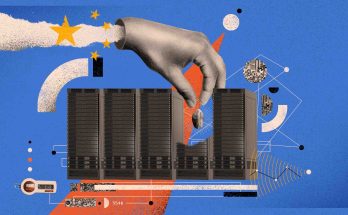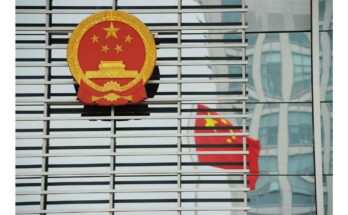“China’s vast Internet prison”
The Washington Post, November 9, 2016
The Post’s View
By Editorial Board
“In law and in practice, China is creating the world’s largest online thought prison. It turns the idea of the Internet as a force for freedom on its head, and as China goes, so go other tyrants. From Vietnam to Saudi Arabia, from Russia to Turkey, the age of Internet repression has blossomed.”
CHINA’S INTERNET is a universe of contradictions. It has brought hundreds of millions of people online and has become a vast marketplace for digital commerce, yet it is also heavily policed by censors to snuff out any challenge to the ruling Communist Party. Under President Xi Jinping, the censors are working overtime to keep 721 million Internet users under control.
The latest effort came Monday. China’s national parliament approved a cybersecurity law that can be used to restrict free speech and force foreign Internet companies to heed the demands of China’s security services. Censorship is not new in China; a huge phalanx of officials are devoted to it, harsh punishments are meted out, and the country is ringed by a content-blocking Great Firewall. But now censorship will be more fully enshrined in the legal code.
About the Author:
Editorials represent the views of The Washington Post as an institution, as determined through debate among members of the editorial board. The board includes: Editorial Page Editor Fred Hiatt; Deputy Editorial Page Editor Jackson Diehl; Deputy Editorial Page Editor Ruth Marcus; Associate Editorial Page Editor Jo-Ann Armao, who specializes in education and District affairs; Jonathan Capehart, who focuses on national politics; Lee Hockstader, who writes about immigration, and political and other issues affecting Virginia and Maryland; Charles Lane, who concentrates on economic policy, trade and globalization; Stephen Stromberg, who specializes in energy, the environment, public health and other federal policy; David Hoffman, who writes about foreign affairs and press freedom; Molly Roberts, who focuses on technology and society; and Emefa Agawu, who writes about social policy and other issues, with a focus on developments in state capitals and cities around the U.S.
The board highlights issues it thinks are important and responds to news events, mindful of stands it has taken in previous editorials and principles that have animated Post editorial boards over time. Articles in the news pages sometimes prompt ideas for editorials, but every editorial is based on original reporting. News reporters and editors never contribute to editorial board discussions, and editorial board members don’t have any role in news coverage.
See also:
- The Washington Post series BEHIND THE FIREWALL: How China tamed the Internet | This is part of a series examining the impact of China’s Great Firewall, a mechanism of Internet censorship and surveillance that affects nearly 700 million users. Published 2016,






